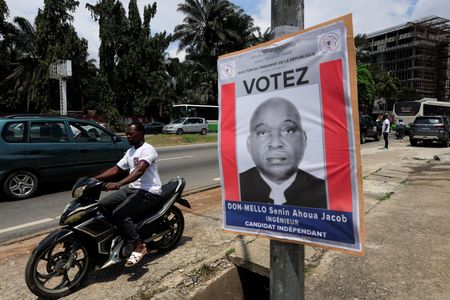By Nellie Peyton
JOHANNESBURG (Reuters) -The Democratic Alliance, the second-biggest party in South Africa’s coalition government, wants to axe race-based laws aimed at boosting Black jobs in an economy still dominated by white people three decades after the end of apartheid.
How to address the legacy of white minority rule is a big debate between the DA and its larger coalition partner, the African National Congress, with the issue further amplified by criticism from U.S. President Donald Trump.
The DA’s proposed “Economic Inclusion For All Bill” would amend the Public Procurement Act of 2024, which gives an advantage to companies that are Black-owned or run when bidding for government contracts. The DA says this system has encouraged corruption and failed to help most Black people.
The DA calls for the removal of references to Broad-Based Black Economic Empowerment – the ANC’s flagship affirmative action programme – across legislation.
The ANC says that race-based legislation is necessary for redress and has accused the DA – whose party leader is white – of protecting white interests. The DA denies this.
The bill is unlikely to pass, but it highlights racial tensions that had drawn little attention from outside South Africa until Trump highlighted them by criticising the government’s race-based policies during a testy White House meeting with President Cyril Ramaphosa in May.
White people still occupy over 60% of top management positions in South Africa, despite being 7% of the population.
DA head of policy Mathew Cuthbert rejected comparisons with Trump’s moves to dismantle diversity, equity and inclusion programmes.
“We are not trying to copycat … conservative policies which have been taken in the U.S.,” he told a press conference.
“This bill aims to replace years of ineffective ANC empowerment policies that have left the vast majority of South Africans unemployed, impoverished and hopeless,” said Cuthbert.
The bill targets poverty as a proxy for disadvantage instead of race, he said.
(Reporting by Nellie Peyton;Editing by Tim Cocks and Alison Williams)










